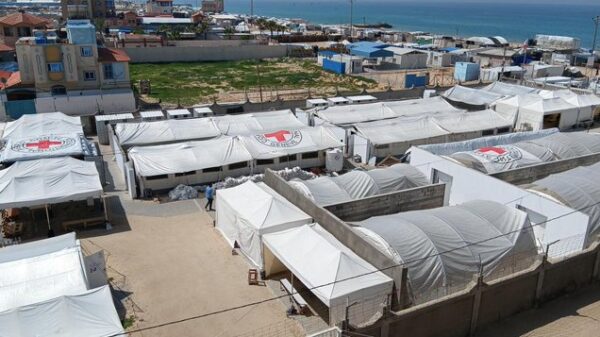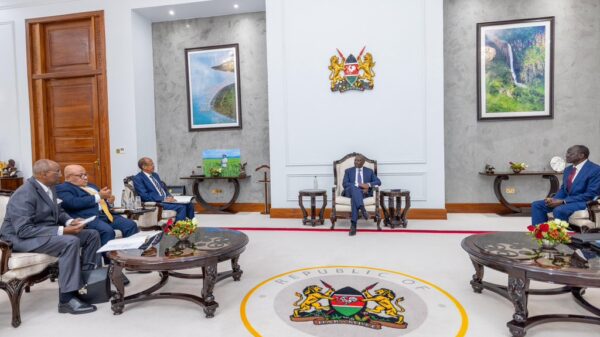STOCKHOLM, October 5 – The pundits’ wild guessing game is in full swing ahead of the Nobel season which opens Monday, with Chinese or Russian human rights activists favourites to win the Peace Prize and France’s Jean-Marie Gustave Le Clezio tipped for the Literature Prize.
The Nobel committees never reveal the names of the nominees for the prestigious awards, leaving observers to resort to unbridled speculation about who could take the honours.
For the Peace Prize, to be announced in Oslo on October 10, Chinese dissident Hu Jia and Chechen human rights lawyer Lidiya Yusupova are seen as strong contenders, as 2008 marks the 60th anniversary of the United Nations’ Universal Declaration of Human Rights.
"The prize this year will finally go to a Chinese dissident and I believe that the most likely is Hu Jia, perhaps together with his wife," predicted Stein Toennesson, director of the International Peace Research Institute in Oslo.
Nineteen years after awarding the prize to the Dalai Lama, the five-member Norwegian Nobel Committee could choose to send a stinging reminder to the Chinese regime to stick to its vow to improve human rights.
Or it could opt to put the spotlight on Russia, according to Janne Haaland Matlary, a political science professor at Oslo University.
Yusupova, the former head of the Russian rights group Memorial in Grozny, collated information and statistics about Russian human rights abuses such as torture, kidnapping and executions across Chechnya.
Other names circulating as possible laureates are Vietnamese Buddhist monk and democracy activist Thich Quang Do, former French-Colombian hostage Ingrid capitalfmnewncourt and Cuban dissident Oswaldo Paya.
For the Literature Prize, which will be announced on October 9, Le Clezio’s name appears to stand out this year in Stockholm’s literary circles.
"This time I think it could be Le Clezio," Maria Schottenius, culture editor at Sweden’s paper of reference Dagens Nyheter, told AFP.
An editor who asked to remain anonymous agreed.
"The Nobel statutes say the prize should honour a body of work with ideals, and Le Clezio’s books are teeming with humanity. He straddles several cultures, Latin America, Africa, Europe. All of this appeals to the Swedish Academy," he said.
Among the names tossed about every year include South Korea’s Ko Un, Peru’s Mario Vargas Llosa, Americans Philip Roth and Joyce Carol Oates, Japan’s Haruki Murakami, Italian Antonio Tabucchi, Israel’s Amos Oz, Canada’s Margaret Atwood and France’s Yves Bonnefoy.
Online betting site Ladbrokes meanwhile has Italian essayist Claudio Magris as the frontrunner with 3-to-1 odds.
The Nobel Prize season kicks off Monday with the announcement of the Medicine Prize winner, followed by the Physics Prize on Tuesday and the Chemistry Prize on Wednesday.
Americans have for decades dominated the science prizes, though last year Europeans prevailed.
For the medicine award, fields that could be honoured this year include DNA fingerprinting, cancer research, and the discovery of the AIDS virus, while the Physics Prize could go to work on particle physics, observers suggested.
The chemistry committee has in recent years crowned discoveries with practical applications, so the 2008 laureates may have done research now used in the fields of information technology or the environment.
The Economics Prize announcement is due on October 13.
The current financial crisis is not expected to play a role in the prize committee’s deliberations this year, but it could affect future choices.
One of the economic doctrines most often prized by the committee — market liberalism — is being blamed by many for today’s woes and observers have suggested the committee may in the future turn the spotlight on macroeconomic stabilisation theories or new chaos theories.
The Nobel Prizes, founded by Swedish industrialist Alfred Nobel, were first awarded in 1901.
Nobel, the inventor of dynamite, died childless in 1896, dedicating his vast fortune to create the prizes.
Laureates receive 10 million Swedish kronor (1.42 million dollars, 1.02 million euros) which can be split between up to three winners per prize.


































